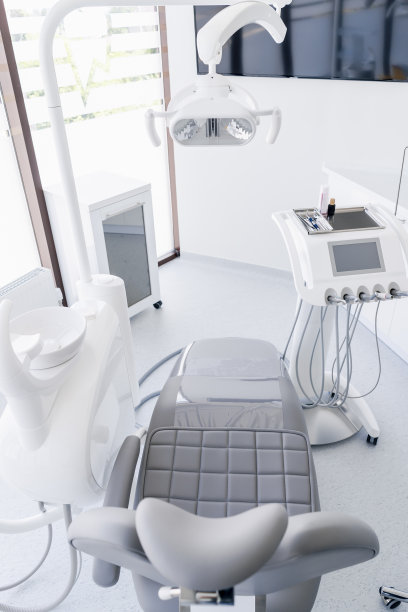Summary: Dental fillings are crucial for restoring damaged teeth and maintaining oral health, but ensuring a successful procedure requires careful planning and precautions. This article outlines essential precautions to take before, during, and after a dental filling procedure to enhance its success and contribute to long-lasting dental health. From selecting the right dentist and preparing for the appointment to adhering to post-procedure care, each stage is essential for minimizing complications and promoting a healthy smile.
1. Choose a Qualified Dental Professional

Selecting a skilled and experienced dentist is paramount for a successful dental filling procedure. A qualified professional can offer insights into the best filling materials and techniques suitable for your dental issue. Look for dentists who have good reviews and verified credentials, as this can significantly impact the quality of care you receive.
Besides qualifications, its essential to ensure that the dental professional is familiar with the latest technologies and methodologies in dentistry. Modern techniques often reduce discomfort and enhance the effectiveness of dental fillings, making your overall experience smoother.
Communication with your dentist is also a crucial factor. Open dialogues regarding your dental health concerns and treatment options can lead to personalized care tailored specifically for you. This practice builds trust and eases any anxiety surrounding the procedure.
2. Prepare for the Dental Appointment
Proper preparation for your appointment goes a long way in ensuring the success of the procedure. Start by maintaining good oral hygiene practices leading up to your visit, including regular brushing and flossing to reduce bacteria in your mouth. This can significantly lower the risk of infections during and after the filling procedure.
Its advisable to inform your dentist about any medications you are taking, as some can affect the procedure or healing. Additionally, if you have underlying health conditions, communicating these to your dentist can help them customize your treatment plan.
Finally, consider arranging transportation for your appointment if youre receiving sedation. Although many people opt for local anesthesia, some may require stronger sedation methods, making it necessary to have someone drive you home afterward to ensure safety and comfort.
3. Follow Post-Procedure Care Instructions
After your dental filling, adhering to post-procedure care guidelines is essential to promote healing and ensure the longevity of the filling. Your dentist may recommend a soft diet for the first 24 hours to avoid putting pressure on the filling. Its crucial to follow these instructions closely to prevent complications.
Maintaining oral hygiene after the procedure is equally important. Gently brush around the filled area to keep it clean without risking disturbing the filling. Your dentist may recommend using a non-abrasive toothpaste and avoiding very hot or cold foods for a short time to allow for proper adjustment.
Scheduled follow-up visits are part of good aftercare. These check-ups allow your dentist to monitor the condition of the filling and your overall oral health, making adjustments as necessary to ensure everything is functioning as it should.
4. Maintain Regular Dental Check-Ups
Regular dental check-ups are an indispensable part of long-term dental health management. By visiting your dentist regularly, you ensure that any potential issues with your fillings or other aspects of your oral health are identified early, preventing more significant problems in the future.
During these check-ups, your dentist will assess the condition of your dental fillings and provide cleaning, ensuring that plaque buildup doesnt compromise your oral health. This proactive approach is essential for maintaining both the integrity of the fillings and overall gum health.
Incorporating preventive care, such as professional cleanings and protective sealants, during these visits can further enhance your dental health. Such measures not only improve the longevity of your fillings but also contribute to a healthier and brighter smile overall.
Summary:
In summary, ensuring a successful dental filling procedure involves various essential precautions starting from selecting a qualified dentist to following proper post-care guidelines. Each step in this process plays a significant role in promoting long-lasting dental health and minimizing potential complications.
This comprehensive approach not only aids in effective tooth restoration but also fosters a more profound commitment to ongoing oral health care.
This article is compiled by Vickong Dental and the content is for reference only
Vickong Dental
Vickong Dental is a large medical group established in Hong Kong in 2008 by professors from well-known medical universities in Guangdong and Hong Kong, as well as medical doctors from key national '985' universities (including Master's supervisors and senior professors). The chain of branches brings together expert dentists with PhDs and Master's degrees from Hong Kong and Mainland China, committed to providing high-quality dental treatment.
"Vickong Dental Practices the University Motto of 'Healing and Serving Society,' with a Stable Operation for Sixteen Years. It Has Been honored with Hong Kong Enterprise Leaders's Choice,' and is a Global Trusted Implant Center for the Nobel Implant System. Recommended by Hong Kong Metro Broadcast and Guangdong Television, it Serves Customers from Over Thirty Countries and Regions, Gaining the Trust and Favor of Citizens from the Guangdong-Hong Kong-Macau Greater Bay Area and Surrounding Cities.

Thousands of customers' unanimous praise
The most recognized and highly recommended dental service by customers in the Guangdong-Hong Kong-Macau Greater Bay Area
We Ensure You Receive Detailed Care and Attention Here
Hong Kong standards, Shenzhen prices, Your Trusted English-speaking dentists

Vickong Dental Medical-Grade Instrument Disinfection Process
Vickong Dental Medical-Grade Instrument Disinfection Process

Vickong Dental Chain: A Warm and Comfortable Environment for Treatment






Appointment Hours

Q&A
Why choose Vickong Dental?
Vickong Dental practices the university motto 「Medicine to Benefit Society」, with each branch bringing together highly qualified dentists with doctoral and master’s degrees from Hong Kong and the Mainland, and has maintained seventeen years of steady operation。Recipient of 「2024 Hong Kong Enterprise Leaders Brand」, 「2025 Hong Kong Enterprise Leaders Brand」, a Nobel Biocare Global Trusted Implant Center, and a brand recommended by Metro Radio Hong Kong and Guangdong TV。
To date, we have served customers from more than thirty countries and regions,earning exceptionally high word-of-mouth recognition and trusted recommendations from residents across the Guangdong-Hong Kong-Macao Greater Bay Area and surrounding cities
We have eight major branches in Zhuhai、Shenzhen,and a consultation and service assurance center in Hong Kong,so you can book a free consultation at any time for any questions,which is very reassuring.
If I do not accept the quotation after the CT scan, will I be charged??
No! As long as the actual treatment has not started, you will not be charged any fees.
Will there be any additional charges during the treatment process?
No, there won’t be any additional charges. Before treatment begins, we will clearly explain the treatment plan and its corresponding fees. Only after the patient agrees and signs the consent form will we proceed with the dental service.
Can I pay in Hong Kong dollars?
Yes. Vickong Dental accepts payment in Hong Kong dollars. The amount will be converted based on the exchange rate of the day, and the applicable rate will be clearly communicated to you in advance.
Can I reschedule my appointment at any time?
Yes. Please contact us via **WeChat** or **WhatsApp** as early as possible, providing your original appointment time and details, along with your preferred new date and time slot for rescheduling.













